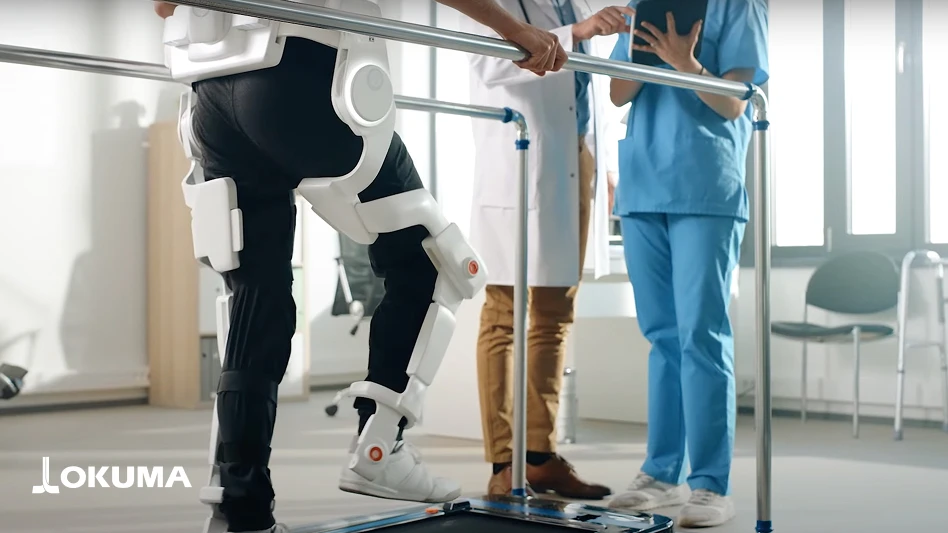
EPFL scientists have developed a soft artificial skin that provides haptic feedback.
The artificial skin contains soft pneumatic actuators that form a membrane layer which can be inflated by pumping air into it. The actuators can be tuned to varying pressures and frequencies (up to 100Hz, or 100 impulses per second). The skin vibrates when the membrane layer is inflated and deflated rapidly. A sensor layer sits on top of the membrane layer and contains soft electrodes made of a liquid-solid gallium mixture. These electrodes measure the skin’s deformation continuously and send the data to a microcontroller, which uses this feedback to fine-tune the sensation transmitted to the wearer in response to the wearer’s movements and changes in external factors.
Thanks to a sophisticated self-sensing mechanism, it has the potential to instantaneously adapt to a wearer’s movements. Learn more about the research at EPFL.
Photo courtesy of EPFL
Latest from Today's Medical Developments
- Blum-Novotest opens new Competence Center in Erlanger, Kentucky
- HydroPlasma: The future of surface cleaning in high-tech industries
- Heule partners with Center for Machining Excellence
- Down the road: What really is next for electric vehicles?
- Driving successful medtech innovation
- Last call for July’s medical manufacturing Lunch + Learn!
- Transform What’s Possible with the Okuma MULTUS U3000
- Okuma: Extraordinary Starts Where Limits End










